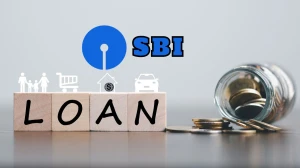
What are the Types of Loans for Mortgages?
Mortgage options include conventional, jumbo, and government-backed loans (FHA, VA, USDA), along with fixed-rate and adjustable-rate mortgages, offering choices for different financial needs.
by Sai V
Updated Nov 28, 2023
On This Page
What are the Types of Loans for Mortgages?
Mortgages serve as vital tools for home financing, catering to diverse needs and financial scenarios. This overview outlines five main types of mortgage loans, ranging from conventional options for those with good credit to government-backed alternatives, providing a comprehensive guide for borrowers to navigate the intricacies of the housing market.
Conventional Loan
Conventional loans are the most common mortgage type, divided into conforming and non-conforming loans. Conforming loans adhere to Federal Housing Finance Agency (FHFA) standards and can be purchased by government-sponsored enterprises (GSEs) like Fannie Mae and Freddie Mac. Non-conforming loans, such as jumbo loans, don't meet FHFA standards and are often riskier for lenders.
Jumbo Loan
Jumbo loans are designed for individuals looking to finance homes exceeding FHFA's conforming loan limits. These loans enable the purchase of more expensive homes, offering competitive interest rates, especially in high-value areas.
Government-Backed Loan
The U.S. government supports homeownership through three main types of government-backed mortgages: FHA loans, VA loans, and USDA loans.
- FHA Loans
Insured by the Federal Housing Administration, FHA loans accommodate borrowers with credit scores as low as 580 and a minimum down payment of 3.5%. However, borrowers must pay mortgage insurance premiums.
- VA Loans
Guaranteed by the U.S. Department of Veterans Affairs, VA loans are available to eligible members of the U.S. military with no minimum down payment, mortgage insurance, or credit score requirement. A funding fee is charged at closing.
- USDA Loans
Guaranteed by the U.S. Department of Agriculture, USDA loans assist moderate- to low-income borrowers in rural areas. These loans have no credit score or down payment requirement but do incur guarantee fees.
Fixed-Rate Mortgage
Fixed-rate mortgages maintain a consistent interest rate throughout the loan term, resulting in stable monthly payments. These mortgages are suitable for homeowners planning to stay in their homes for an extended period and seeking payment stability.
Adjustable-Rate Mortgage (ARM)
Adjustable-rate mortgages (ARMs) have interest rates that change over time. They often start with a lower, fixed introductory rate for a specified period before adjusting based on economic conditions. ARMs can be suitable for individuals not planning to stay in their homes for an extended period and willing to accept some risk for potential interest savings.
What are Other Types of Home Loans?
Home loans extend beyond the traditional mortgage landscape, offering diverse options. From construction loans to non-qualifying loans, each addresses specific needs. Explore alternative financing avenues for your unique situation. To make an informed decision, consider consulting the Best Mortgage Lenders of November 2023 for valuable insights and competitive options in the current market.
Construction Loans
Construction loans are a strategic choice for building homes, with construction-to-permanent options streamlining the transition to traditional mortgages. These short-term loans cater to those providing a higher down payment and demonstrating the ability to manage monthly payments effectively.
Interest-Only Mortgages
Interest-only mortgages involve initial payments covering only interest, providing financial flexibility for five or seven years. Although equity builds up slowly, this option is ideal for those planning to sell, refinance, or anticipate increased capacity for higher payments.
Piggyback Loans
Piggyback loans, like 80/10/10 loans, split the home price into two loans, offering a route to avoid mortgage insurance. Beneficial for cost savings, this option requires navigating two sets of closing costs, making it suitable for those willing to manage dual loans.
Balloon Mortgages
Balloon mortgages feature payments based on an extended term but conclude with a sizable balloon payment. Suited for those with stable financial resources, these loans demand readiness for a substantial final payment, making them a fitting choice for financially prepared individuals.
Portfolio Loans
Portfolio loans stand out as lenders retain them "on the books," providing increased flexibility without adhering to external standards. This unique feature makes portfolio loans appealing for those seeking customized lending experiences and more adaptable requirements.
Renovation Mortgages
Renovation mortgages, exemplified by FHA 203(k) loans, combine the costs of purchasing and renovation into one mortgage. This simplifies the process for homebuyers interested in properties needing significant renovations.
Physician Loans
Physician loans cater to healthcare professionals burdened by substantial student loan debt, offering tailored lending solutions. Geared towards facilitating home purchases, these loans recognize the unique financial challenges faced by doctors, nurses, and other health professionals.
Non-Qualifying Loans
Non-Qualifying Loans, known as non-QM loans, provide flexibility with terms and underwriting, appealing to less-traditional borrowers. While offering lenient credit and income requirements, these loans come with higher down payments, interest rates, and potentially riskier conditions, making them suitable for those comfortable with the trade-offs.
Read More >> How Much House Can I Afford? Mortgage Affordability Calculator
What is a Mortgage?
A mortgage is a specialized loan designed for acquiring real estate, such as a home or land, where the borrower commits to repaying the lender over time through regular payments covering both principal and interest.
The property itself serves as collateral, securing the loan, and the mortgage application involves meeting specific criteria, including minimum credit scores and down payments. With various types available, such as conventional or fixed-rate, the overall cost of a mortgage is influenced by factors like loan type, term (e.g., 30 years), and the lender's interest rate, offering borrowers flexibility to tailor their financial arrangements to their specific needs and qualifications.
Know more >> What is a Mortgage? How Much Mortgage Can I Afford?
Looking for the ideal Mortgage to finance your dream home? MarketsHost has a diverse range of options tailored just for you. Our platform simplifies the process, making it easier for you to find the right fit.
How Does Mortgages Work?
Mortgages work by enabling individuals and businesses to afford real estate purchases by securing a loan from a lender. Borrowers commit to repaying the loan, including both the principal amount borrowed and accrued interest, typically over extended periods, with common terms of 15 or 30 years. These regular payments, known as mortgage installments, ensure that borrowers eventually own the property outright.
The property itself serves as collateral, providing lenders with security in case borrowers fail to meet their payment obligations. In such cases, lenders have the right to foreclose on the property, take possession, sell it, and use the proceeds from the sale to satisfy the remaining mortgage debt. This process makes homeownership and real estate investment accessible, offering a structured approach for spreading the cost of property purchases over time while protecting lenders' interests.
How to Choose the Right Type of Mortgage Loan?
Choosing the right type of mortgage loan requires careful consideration of your financial situation, goals, and eligibility. Several factors come into play, such as credit score, financial stability, and the duration of your homeownership. For instance, if you plan to sell your home in a few years, an adjustable-rate mortgage (ARM) might be suitable to take advantage of lower initial interest rates.
On the other hand, if you prefer the stability of fixed monthly payments and plan to stay in your home for an extended period, a fixed-rate mortgage could be the better choice and one should know When Will Mortgage Rates Go Down. Additionally, it's essential to assess your debt-to-income (DTI) ratio and credit score. Different loan programs have specific credit and down payment requirements.
For example, FHA loans offer more flexible credit requirements, making them an attractive option for borrowers with lower credit scores. VA loans, on the other hand, are exclusive to eligible members of the military, while conventional loans may necessitate a higher credit score and down payment. By evaluating these factors, you can make an informed decision about the type of mortgage that best aligns with your unique circumstances and homeownership objectives.
Also Read >> Is a Mortgage Installment or Revolving?
Types of Loans for Mortgages - FAQs
1. What is a conventional loan, and who is it best suited for?
A conventional loan is a common mortgage option, best suited for borrowers with good credit scores.
2. How do government-backed loans differ from conventional loans?
Government-backed loans, like FHA, VA, and USDA, cater to borrowers with lower credit scores or limited down payment funds, offering more flexible requirements.
3. What sets fixed-rate mortgages apart, and who benefits most from them?
Fixed-rate mortgages maintain a consistent interest rate, providing stable, predictable monthly payments ideal for borrowers seeking financial predictability.
4. When considering a jumbo loan, what factors should borrowers be aware of?
Jumbo loans are suitable for more expensive homes, but borrowers should note higher credit score and down payment requirements.
5. What makes non-qualifying loans unique, and who might find them appealing?
Non-qualifying loans, or non-QM loans, offer flexibility but come with higher down payments and interest rates, making them suitable for less-traditional borrowers comfortable with trade-offs.




